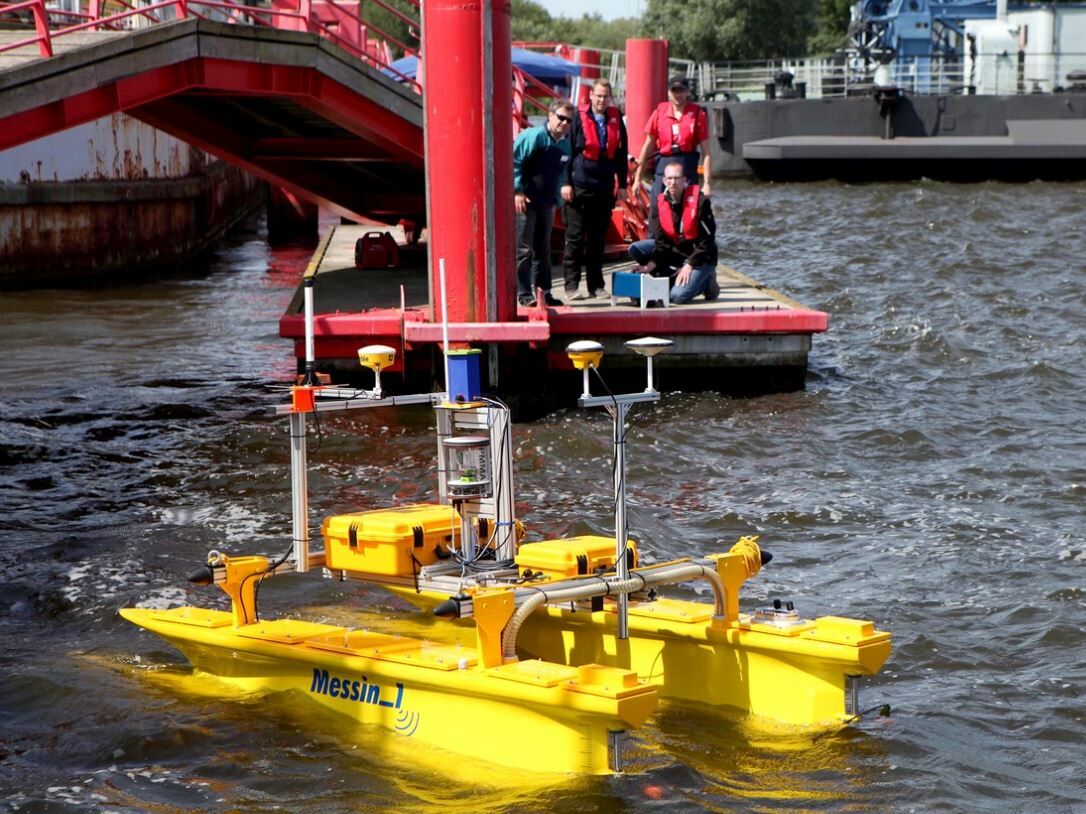Scientists from the departments of Electrical Engineering and Computer Science as well as Maritime Engineering, Plant Engineering and Logistics at the Faculty of Engineering are cooperating in the research project "GALILEOnautic 2" on the topic of "Assisted Manoeuvring and Automated Docking".
Wismar University of Applied Sciences is further developing the methods for maritime environment recognition investigated in the GALILEOnautic project for use on seagoing ships (research ships, ferries) and supplementing them with additional methods. In addition, the Wismar University of Applied Sciences is mainly responsible for the solution of assisted ship navigation. The disturbance models developed in GALILEOnautic as well as the sensor data integration are adapted to the current sensor systems and expanded accordingly. The university's Ship Handling Simulator (SHS) is available for extensive investigations. The ship movement models to be developed are used on the one hand in the software solution of the manoeuvre assistance system and on the other hand in the SHS for simulative investigations. The University of Wismar is devoting itself to both special environment recognition and the creation of the associated models for wind and fender effects and water dynamic pressure (banking and cushion effects) for the task of automatic docking.
Project partners: RWTH Aachen / Institute of Control Engineering, University of Rostock (coordinator) / Chair of Control Engineering as well as AG Optimization and Optimal Control, University of Bremen / SCISYS Deutschland GmbH / ISSIMS as well as ATM, University of Applied Sciences Wismar

